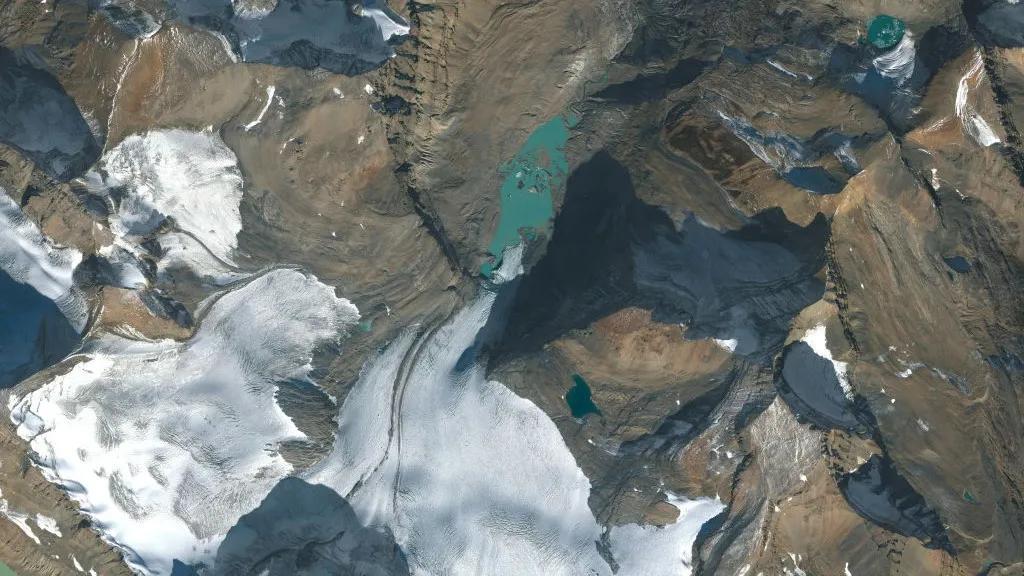
North America & Europe’s Glaciers Lost Unprecedented Ice in 4 Years: Study
The world is witnessing a catastrophic decline in glaciers across North America and Europe, with a recent study revealing that these ice masses have lost an unprecedented amount of ice over the past four years. The study, published in the journal Geophysical Research Letters, found that glaciers in Washington, Montana, British Columbia, Alberta, and the Swiss Alps have shrunk at an alarming rate, with some experiencing a 13% decline in just a few short years.
The study, conducted by a team of researchers from the University of Montana and the University of Colorado Boulder, analyzed data from 2021 to 2024 and compared it to the previous decade, from 2010 to 2020. The results are stark: between 2021 and 2024, the glaciers in these regions lost “unprecedented” ice, with an average annual loss of 24.5 billion tons in the United States and Canada, and 1.7 billion tons in the Swiss Alps.
To put these numbers into perspective, the study found that the average annual ice loss from 2010 to 2020 was 12.2 billion tons in the US and Canadian glaciers, and 0.8 billion tons in the Swiss Alps. This means that the ice loss over the past four years has been more than double the average annual loss recorded over the previous decade.
The researchers used satellite imagery and computer models to track the changes in glacier size and shape over the past 15 years. They found that the glaciers in the US and Canada have been losing ice at a rate of 24.5 billion tons per year, on average, with some glaciers experiencing losses of up to 13% of their total volume.
In the Swiss Alps, the researchers found that the glaciers had lost an average of 1.7 billion tons of ice per year, with some glaciers experiencing losses of up to 10% of their total volume.
The causes of this unprecedented ice loss are complex and multifaceted. Climate change is the primary driver, with rising temperatures and changing precipitation patterns contributing to the decline. However, other factors such as land use changes, such as deforestation and urbanization, and human activities such as mining and construction, may also be playing a role.
The implications of this study are far-reaching and have significant consequences for the environment, ecosystems, and human societies. Glaciers play a crucial role in regulating global temperatures, providing freshwater sources, and supporting biodiversity. As they decline, these ecosystems are under threat, and the consequences of inaction will be severe.
The study’s lead author, Dr. Marco Tedesco, a glaciologist at Columbia University, emphasized the urgency of the situation. “We’re seeing a catastrophic decline in glaciers at an unprecedented rate,” he said. “If we don’t take action to reduce our greenhouse gas emissions and address the root causes of climate change, we risk losing these vital ecosystems forever.”
The study’s findings have significant implications for policymakers, who must take immediate action to address the climate crisis. The study’s authors are calling for increased investment in renewable energy, energy efficiency, and sustainable land use practices to reduce greenhouse gas emissions.
In conclusion, the study’s findings are a wake-up call for the world. The unprecedented ice loss in North America and Europe’s glaciers is a clear indication of the severity of the climate crisis and the urgent need for action. As we move forward, it is essential that we prioritize the preservation of these vital ecosystems and take concrete steps to address the root causes of climate change.
Source:
Tedesco, M. et al. (2025). Unprecedented glacier mass loss in the North American and European Alps from 2021 to 2024. Geophysical Research Letters, 52(10), e2025GL115235. doi: https://agupubs.onlinelibrary.wiley.com/doi/10.1029/2025GL115235






